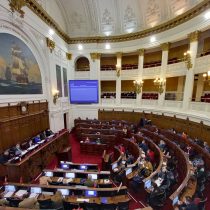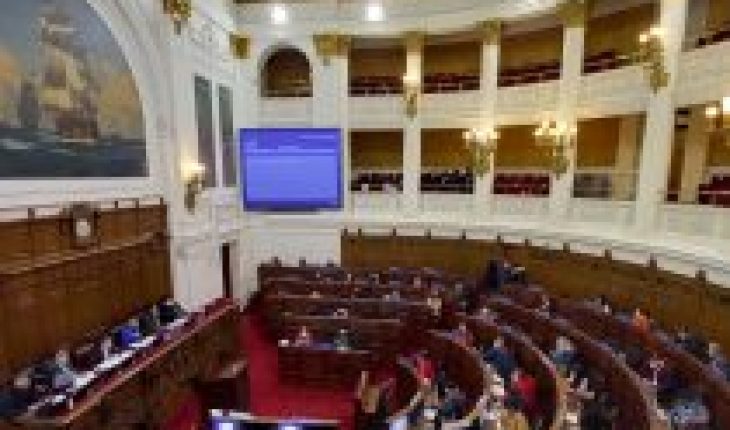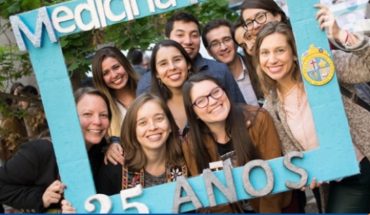
The possibility of a commission on knowledge, cultures, science, technology, arts and heritage is becoming more and more certain. This responds to a work that for years has been developed by the multiple organizations and collectives that make up the social fabric linked to these areas. This is a time when we will need to use all the resources and capacities that we have accumulated over time to build and advance transformative positions, which can be projected over time and are linked to the search to solve the main causes of the current crisis: lack of democracy and rights, development model based on extractivism, facing a climate crisis of a planetary nature, imbalances typical of a historical moment that seems to be epochal change.
The political challenge for the sector posed by this Commission in the Constitutional Convention is very important. It implies thinking about current demands and positions from less sectoral perspectives, aspiring to be a tool at the service of achieving the common good. This requires being adjusted to the guiding principles of the current constituent process, which ideally should also govern the actions of the State of Chile in what is to come. These have been declared in the regulation, to which various indications have been presented that must be resolved during this week. These principles are: pre-eminence of human rights, equality and prohibition of discrimination, gender approach and feminist perspective, plurinationality, interculturality, decentralization, territorial equity, multilingualism and linguistic equality, incident popular participation, incident participation of Indigenous Peoples and indigenous consultation, probity and ethics, care approach, environmental protection, effectiveness, coherence, approach to children and adolescents, inclusive, approach to cultures, heritage and arts, advertising and transparency, economy and care of public resources, pro persona interpretation, pluralism, tolerance, informed deliberation, clear and inclusive language, traceability.
Thus, the question of the relationship between the specific issues to be dealt with in the Commission in question and the general principles of the process appears to be fundamental. It is possible to distinguish at least two perspectives for looking at this matter. The first is the need to ensure that these principles are applied to all the processes that are developed in the commission. This requires that those of us who consider ourselves summoned by this space are active participants, but it also needs us to reflect on the way in which our work and our environment is out of line with such principles, looking for ways to channel ourselves within such a framework.
Ultimately, the definitions made within the commission must be nourished by social participation within the commission. Therefore, it will hardly be able to establish general frameworks for the action of the State in the face of knowledge, cultures, science, technology, arts and heritage, if those of us who develop in such areas do not develop processes of sincere and serious self-criticism, both at the personal level, but especially at the institutional level. Many times to see the straw in the other stranger is not the beam in your own. Moreover, neoliberalism is no stranger to our practices, it is immersed in them.
Not recognizing that and not seeking from an authentic dialogue the collective paths that overcome this reality through joint work with the various actors in the sector, will lead us to lose a unique and surely unrepeatable opportunity. In that sense, the place of spaces of high precariousness such as work at fees, based on competitive projects or postgraduate research, must be significant. The struggles to improve our working conditions are fundamental, and this commission cannot be overdetermined by corporate interests or privileged positions.
A second perspective relates to how to contribute from the specificity of our areas and our commission, so that these principles can be truly applied and applicable, both to the constituent process, to the new Constitution, but also to the actions that the State develops in the future, and that must be mandated by these principles.
I am thinking about the various ways in which the application of the knowledge generated and to be generated in the country can contribute to the effectiveness of these guiding principles.s. For example, in order to effectively combat scourges such as gender-based or racial violence and discrimination, detailed diagnoses of the multiple ways in which such phenomena are deployed territorially, as well as an accurate understanding of their causes and effects at all levels, would be extremely valuable.
The possible approval of this commission will open a space to imagine an institutionality that, together with promoting the cultivation of knowledge and practices that are valuable in themselves, drives us to value our work through a determined contribution to the greater well-being of the peoples who live in Chile.
Today we are faced with a crossroads between democratic deepening and neoliberal authoritarianism that will be fundamental to project what is coming. If we are able to put ourselves at the service of the former, our contribution can be key to thinking and building a new Chile. We won’t have a second chance.
The content expressed in this opinion column is the sole responsibility of its author, and does not necessarily reflect the editorial line or position of El Mostrador.





